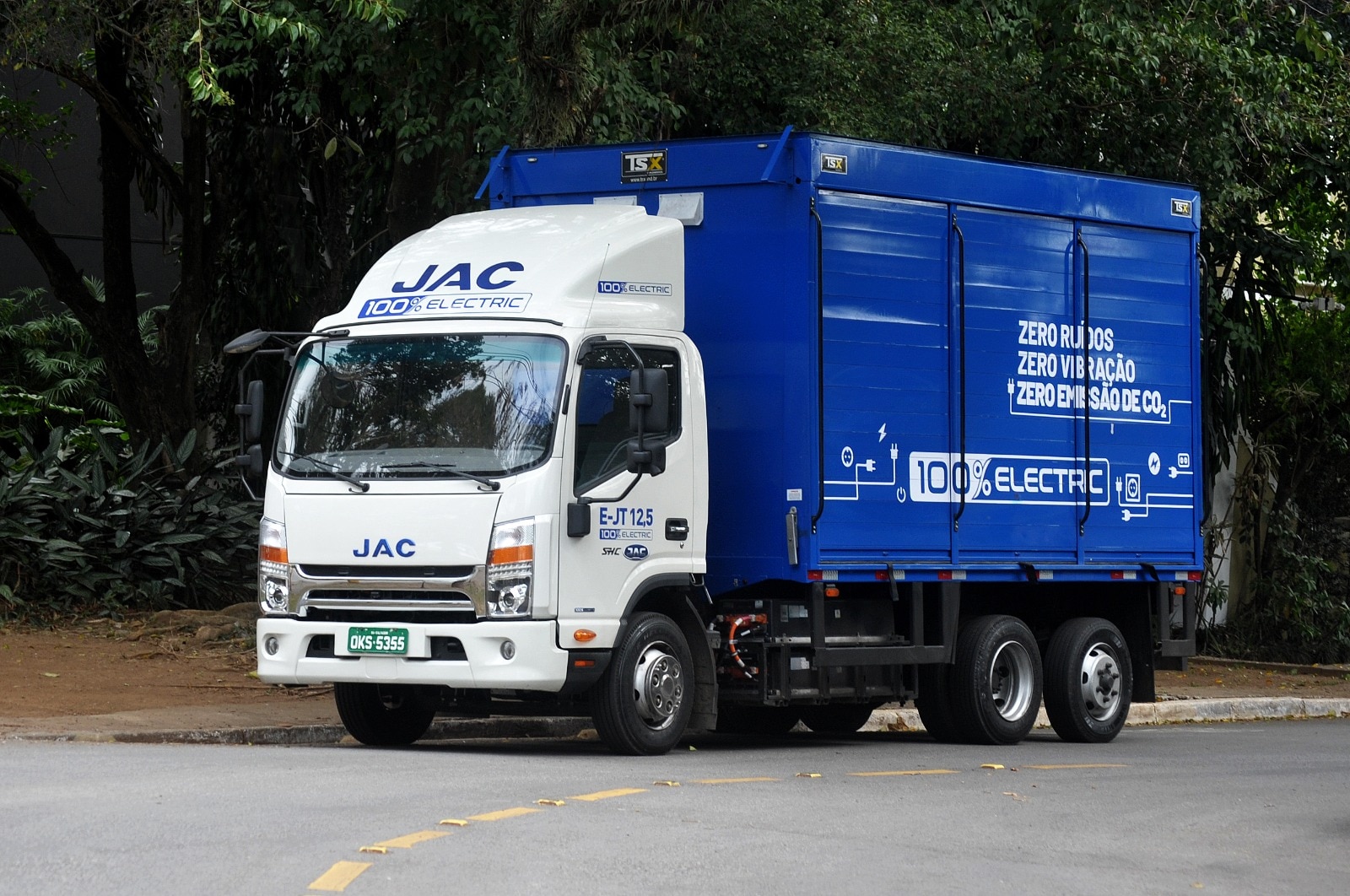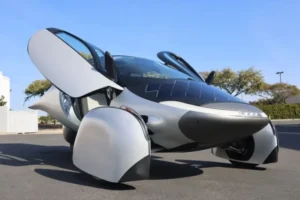‘JAC will dominate the electric utility vehicle market in Brazil’ | Estadão Mobility | Electric Planet
5 min read
The president of JAC Motors Brazil, Sergio Habib, made a bold decision when he restricted the brand’s car portfolio to electric vehicles. This is because, as he himself defines it, it is a niche market and suffered a severe blow in the country at the beginning of the year, with the collection of import taxes, which will increase until reaching 35% in 2026.
Therefore, he takes a step back and prepares the launch of the Hunter pickup truck, in electric and turbodiesel configurations. Still, bold in his initiatives, Habib continues to sell electric vehicles at the brand’s dealerships and bets that JAC will lead the scenario of battery-powered commercial vehicles in ten years, as revealed in the interview with Mobilidade.
Do you consider it a right decision for JAC to sell only electric vehicles in Brazil?
Sergio Habib: The market is small, but I only invested in the sale of electric vehicles because I believed in the growth of the segment. It was a right decision. But then the federal government changed the import tax, which is currently 10% and will reach 35% in 2026. At the beginning of the year, sales of electric cars rose, because the brands had an exempt quota. Let’s evaluate whether they will change their strategies as taxes increase. Given this, JAC is ready to launch the Hunter pickup truck, in electric and turbodiesel versions.
Will the gradual increase in the import tariff compromise sales?
Habib: It is clear that electric vehicles will remain a niche. Anyone interested in purchasing a battery-powered car does not give up on cutting-edge technology. It’s that person who is among the first in line to buy the most modern cell phone and then show it to their group of friends. There is also the consumer who appreciates the new product and plans to buy it. And there are conservatives, who wait longer.
At the same time that you sell electric cars, you are critical of them, aren’t you? Habib: There’s no way not to be. I’ll make a comparison. History is full of cases of equipment that made families’ routines easier, such as color televisions, computers, washing machines and refrigerators. Quickly, everyone realized that it was better to have each of these devices than not to have them. But in the case of the electric car, the automotive industry made a misjudgment. He has a serious problem: “where do I charge it”?
 Sergio Habib, president of JAC Motors Brasil. Photo: JAC/Disclosure
Sergio Habib, president of JAC Motors Brasil. Photo: JAC/Disclosure
But isn’t the charging infrastructure expanding in Brazil?Habib: It’s far from ideal. See what happens in big cities. In France, the share of electric vehicles in the fleet is 17%, but in Greater Paris it is 6%. In New York (United States) it is 3%. Most buildings in cities that have a metro network do not have garages, because the trains run underground. Then, few people buy an electric car, as they won’t have anywhere to recharge where they live. You don’t want to rely solely on public spots.
So, is taking long journeys a risk?Habib: Traveling in Brazil is a hassle. Those who live in Salvador (BA), for example, don’t even risk it. On average, an electric car has a range of 400 kilometers, as long as it travels at 80, 90 km/h. At 120 km/h, it drops to 300 kilometers. The family travels in anguish, afraid of being on the road. Who wants to wait in line to recharge their battery when returning from a trip on a Sunday night? Therefore, I say: in Brazil, we must also consider hybrid models. Now, if the idea is to travel only in the city, then the electric car is perfect.
Do your restrictions extend to the global electric market?Habib: In 2023, the United States sold 1.1 million electric cars in a market of 15 million. In California alone, 500 thousand units were registered, in addition to 250 thousand in Florida and Texas. The increase was leveraged by government support, which offers a US$15,000 bonus for anyone purchasing a vehicle with this technology. A $45,000 Tesla costs $30,000. Who doesn’t? I want!
Smaller states were filled with porters. However, the American government is considering ending this incentive and starting to charge tolls for trams. Germany is one of the most rigorous countries in containing deficits in public accounts. When she realized that the number of electric vehicles was growing too much, she ended the US$4,500 subsidy. Sales are not good in lower income countries. People don’t have money to have two cars, nor an electric one.
JAC also sells electric commercial vehicles in Brazil. Is the scenario for this type of car different?Habib: In 10 years, the van market will be electric, because it is the ideal model for so-called last mile work, in which vehicles travel 100, 120 kilometers per day. JAC will attract attention in this market. Why? Because our models are excellent, they last longer and don’t break. And when there is a problem, maintenance happens quickly. After all, the dealership network is very well trained and equipped to specifically serve electric cars.
Those who sell cars with combustion engines share the focus. There, an electric vehicle will appear every two years. Do you think anyone will know how to fix it? The customer will remain without their car for a month, while at JAC they will only spend two days.
Are you also optimistic about electric trucks?Habib: Half of the Brazilian truck market travels approximately 200 kilometers per day. In 10 years, it will also be electric and with 90% JAC participation. A logistics company recently said that it calculated the number of electric trucks in its fleet and came to the following conclusion: for every 100 electric trucks, it could have one less, because of the economy. After all, it doesn’t break and, when it breaks, the repair is quick.
To learn more about decarbonization in transport, visit the channel Electric Planet
JAC Motors in Brazil
Start of activities in the country: 2011 Vehicle portfolio: E-JS1, E-JS1 Ext, E-JS1 City Cargo, E-JS4, E-J7, iEV 330P, E-JV 5.5, E-JV 7L, iEV 750V, iEV 750 Vip, E-JV CC, iEV 1200T, E-JT 9.5, E-JT 12.5 and E-JT 18.0Number of dealers: 9
Assistance points: 78 Number of employees: 200
The post ‘JAC will dominate the electric utility vehicle market in Brazil’ appeared first on Estadão Mobility.
https://mobilidade.estadao.com.br/mobilidade-para-que/a-jac-vai-dominar-o-mercado-de-veiculos-utilitarios-eletricos-no-brasil/
Author: Dante Grecco
If you want to read more articles like this, click here!





